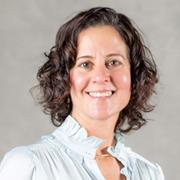About

The Eliot-Pearson Department of Child Study and Human Development is committed to strengths-based and systems-connected understanding of the lives of diverse children, youth, families, and communities. The department provides a vibrant, inclusive, multidisciplinary community dedicated to applied research, learner-centered teaching, and preparing students for a variety of careers. We offer the following degree programs: a BA in child study and human development, an MA program with both research and professional development opportunities, and one of the nation's leading doctoral programs focused on applied developmental science.
Our History
The department's history is rooted in Abigail Eliot's pioneering work establishing one of the nation's first early childhood teacher preparation programs in the 1920’s. In 1964, Eliot-Pearson became the Department of Child Study and grew into a major multidisciplinary community focused on the study of children and the education of undergraduate and master's students. In 1981, the department added one of the nation's first doctoral programs in applied child development, and later changed its name to the Eliot-Pearson Department of Child Development. The interdisciplinary faculty now come from a range of fields, including psychology, child and adolescent development, family studies, education, neuroscience, linguistics, and public policy.
Since its inception, the department has focused on the integration of research and practice. It originally built a national and international reputation around its lab school, the Eliot-Pearson Children’s School, which served both as a place to experiment, train, and develop best practices associated with the education of young children, as well as a laboratory for understanding human development. While early childhood remains a focus, the department's research and teaching now include every major influence on children's and adolescents' lives, including families, peers, media, education, health care, communities, and public policy. Recognizing the growing diversity of children and families in an ever-changing and global society, our teaching and research take a strengths-based approach, address issues of systems change, and seek to create a more accessible, equitable, and just world for children, youth, families and communities locally, nationally, and internationally.
